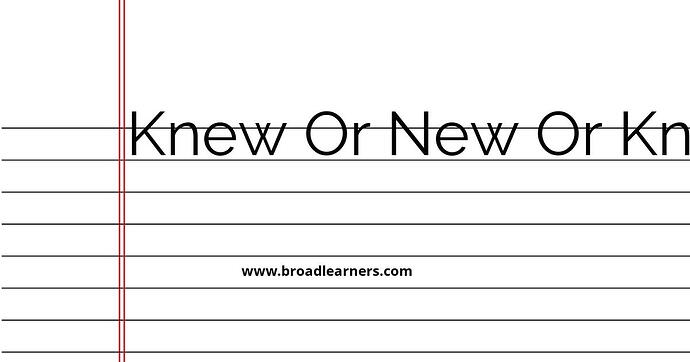'Knew', 'new', and 'knew' are commonly confused words in English grammar. Understanding the difference between 'knew', 'new', and 'knew' is important to use them correctly in written and spoken English.
'Knew' is the past tense of the verb 'know'. It is used to indicate that someone had information or understanding about something in the past.
'New' is an adjective that describes something that has recently come into existence or has been discovered or created. It is used to refer to something that is not old or familiar.
'Knew' is a misspelling of the word 'new'. It is often a common typo or mistake made by people who are not familiar with the correct spelling.
Let's take a closer look at the meanings and usage of 'knew', 'new', and 'knew'.
| 'Knew' | 'New' | 'Knew' |
|---|---|---|
| The word 'knew' is the past tense of the verb 'know' and indicates past knowledge or understanding. | The word 'new' is an adjective that describes something that is recently discovered or created. | The word 'knew' is a misspelling of the word 'new'. |
|
|
|
To remember the difference between 'knew', 'new', and 'knew', it can be helpful to remember that 'knew' is the past tense of 'know', 'new' is an adjective for something recent, and 'knew' is a misspelling of 'new'.
Here are some examples of correct usage:
- I knew the answer to the question. (indicating past knowledge)
- I bought a new car last week. (referring to something recently acquired)
- She told me the news about the event. (referring to recent information)
Remembering the correct usage of 'knew', 'new', and 'knew' will improve your grammar and communication skills.
